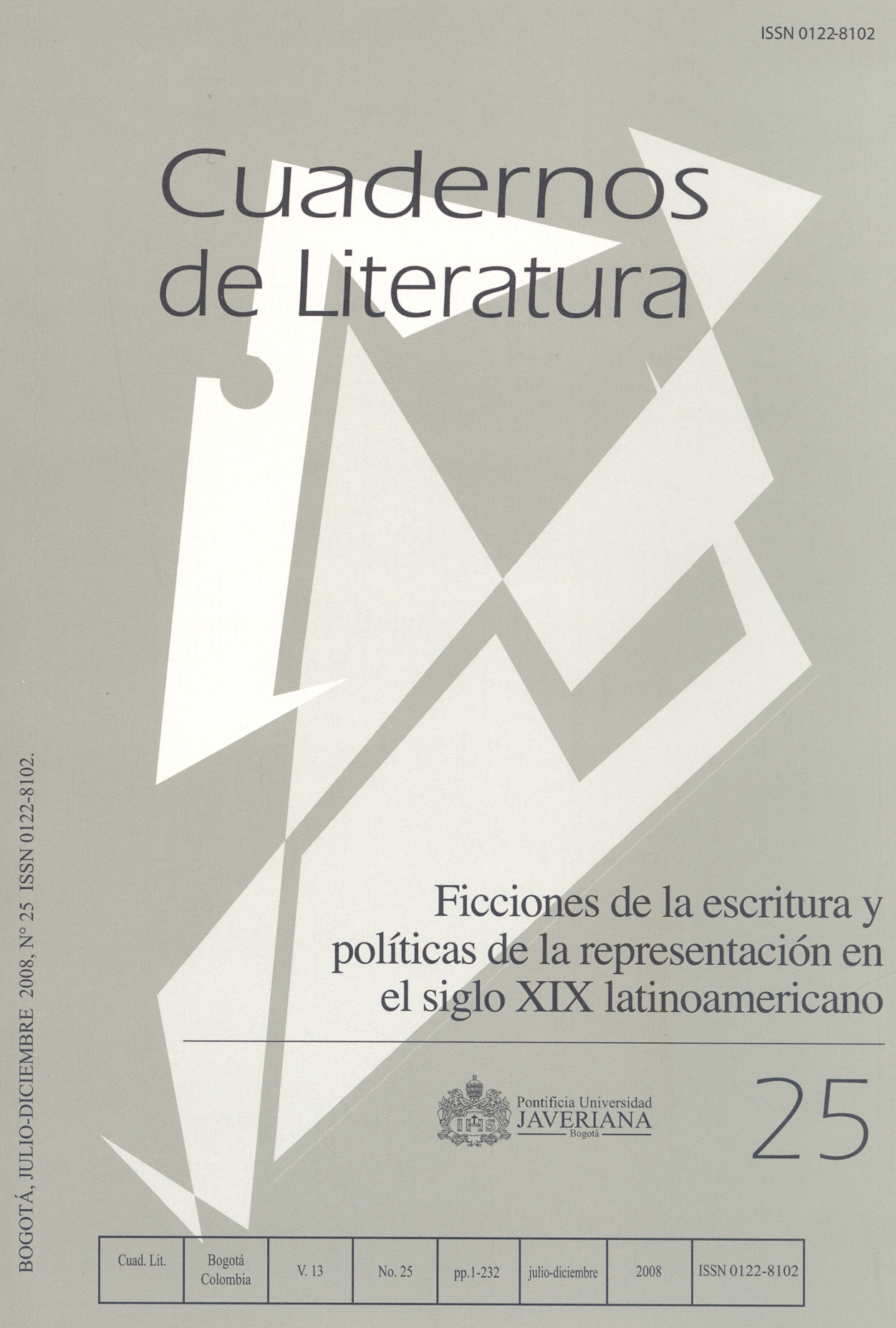Abstract
Este artículo plantea una lectura crítica de la Vida de Joaquín Murrieta, publicación mexicana de la novela estadounidense del autor cherokee Pájaro Amarillo, traducida por el chileno Carlos López Urrutia. Se trata de ubicar esta novela, sobre el legendario bandido mexicano Joaquín Murrieta, en la California de la época del Gold Rush, dentro del contexto de un largo debate literario y estraliterario sobre el personaje, sebate que incluye notablemente una novela frecuentemente atribuída al mexicano Ireneo Paz, Vida y aventuras del más celebre bandido sonorense, Joaquín Murrieta:sus grandes proezas en California, la cantata del chileno Pablo Neruda (para quien Murieta -no Murrieta- es chileno y no mexicano) Fulgor y muerte de Joaquín Murieta, así como una serie de corridos fronterizos, entre otros textos. Esta evaluación aplica la metodología de "contextualización radical" típica de los estudios culturales, que toma en cuenta todos los espacios de la producción (en este caso no sólo la elaboración sino también la traducción) como los de la diseminación y recepción del texto, y desafía los límites clásicos del campo más tradicional de los estudios literarios por su dependencia de esquemas nacionalistas y elitistas.Cuadernos de Literatura is registered under a Creative Commons Attribution 4.0 International Public License. Thus, this work may be reproduced, distributed, and publicly shared in digital format, as long as the names of the authors and Pontificia Universidad Javeriana are acknowledged. Others are allowed to quote, adapt, transform, auto-archive, republish, and create based on this material, for any purpose (even commercial ones), provided the authorship is duly acknowledged, a link to the original work is provided, and it is specified if changes have been made. Pontificia Universidad Javeriana does not hold the rights of published works and the authors are solely responsible for the contents of their works; they keep the moral, intellectual, privacy, and publicity rights.
Approving the intervention of the work (review, copy-editing, translation, layout) and the following outreach, are granted through an use license and not through an assignment of rights. This means the journal and Pontificia Universidad Javeriana cannot be held responsible for any ethical malpractice by the authors. As a consequence of the protection granted by the use license, the journal is not required to publish recantations or modify information already published, unless the errata stems from the editorial management process. Publishing contents in this journal does not generate royalties for contributors.


